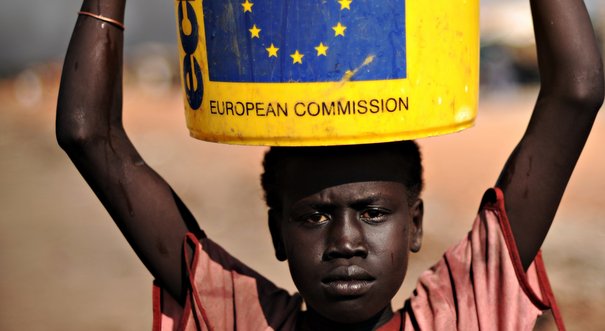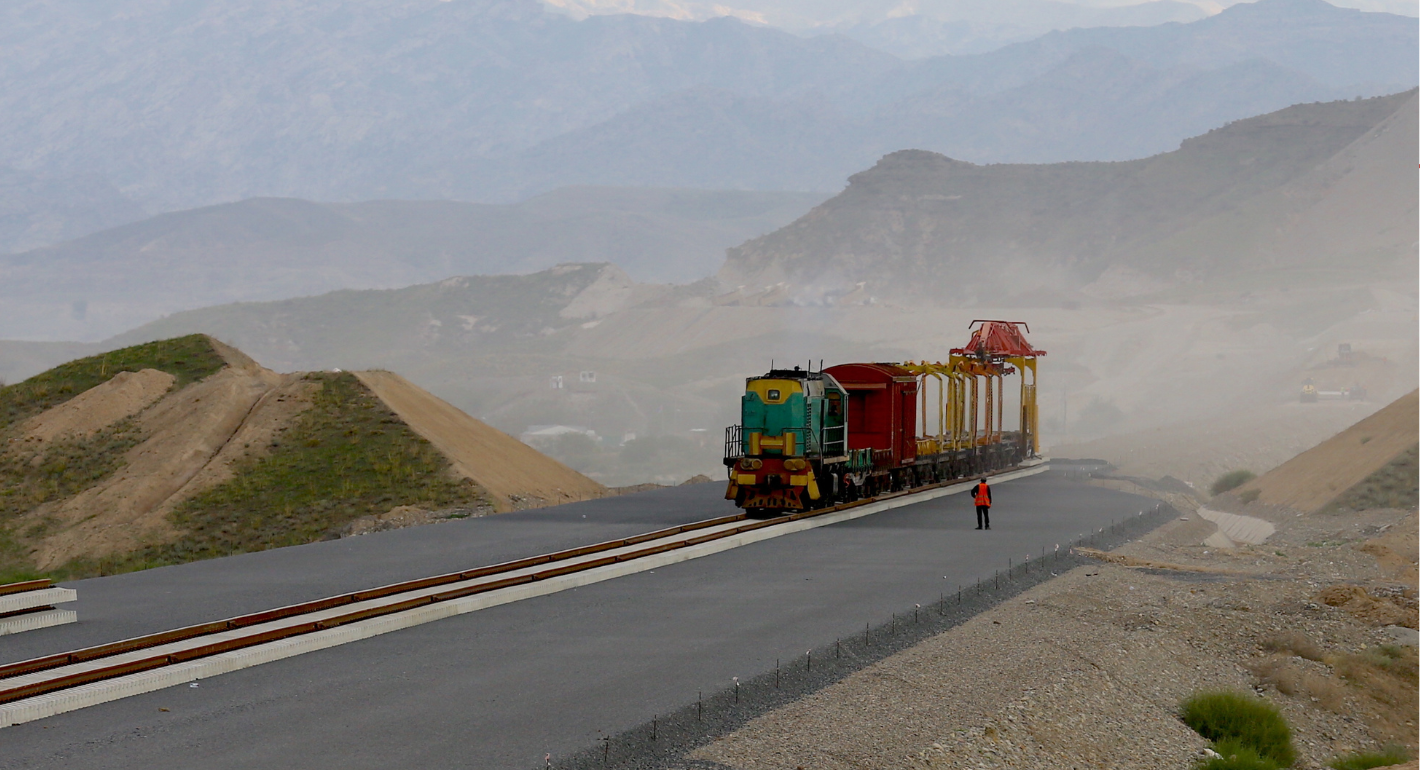Every week leading experts answer a new question from Judy Dempsey on the international challenges shaping Europe’s role in the world.
Fraser Camerondirector of the EU-Asia Centre
Of course the EU’s soft power works. Just think of the magnetic attraction of the world’s largest market. Just think of the millions of people who want to come and live and work in the EU. Just think of the countries queuing up to join. Just think of our welfare system, which is the envy of the world. Just think that there would be no International Criminal Court or Kyoto Protocol without the EU. Just think who would promote human rights around the world if there were no EU. Just think of the millions around the world who watch European soccer (football), drive European cars, wear European fashion, and visit Europe for holidays. That is soft power in action.
The award of the Nobel Peace Prize to the EU has been derided by the usual eurosceptics. But what they cannot deny is the success of the unique experiment in sharing sovereignty that the EU has built up over the past half century. There have been several attempts to unite Europe before, by force. The EU has done it by establishing a legal order that member states voluntarily sign up to for the greater good. That is also soft power in action.
So, there will be no European aircraft carriers patrolling the Taiwan straits, but China and Taiwan have both adopted EU standards on car exhaust emissions. China is building up the share of euros in its foreign currency reserves. Asians, Africans, and Latin Americans look to the EU for inspiration for their own regional integration projects. Soft power, the EU has it in abundance, and it works.
James W. Davisdirector of the Institute of Political Science, University of St. Gallen
The discussion of “soft power” has been confused ever since Harvard Professor Joseph Nye first coined the term. Following the standard definition, power is the ability to get someone to do something they otherwise wouldn’t. Hence power is a form of social influence. It is found in relationships, not something states hold in reserve, like money in a bank account. Foreign policy instruments, whether hard or soft, “work” to the degree to which they lead others to do things they otherwise wouldn’t, or perhaps to pay a higher price to do something than they otherwise might. Those who speak of Europe’s “soft power” suggest a wide scale ability to influence others with non-military means. Of course Europe does this every day, by requiring those who wish to do business in Europe to adhere to certain standards and regulations. The appeal of European culture probably does lead some to change their behavior in non-trivial ways, but from Beijing to Moscow, Tehran to Damascus, autocratic regimes have shown themselves immune to Europe’s charms. But to question the effectiveness of soft power begs another: Is there a more effective alternative?
Jackson Janesexecutive director of the American Institute for Contemporary German Studies at Johns Hopkins University
Europe has become more than the sum of its parts—a fact that can be measured in more than just economic terms. Almost five hundred million Europeans trading with each other makes up one of the world's largest trading blocs. However, it also represents a political bloc of 27 nations engaged in a complex project, one that sees many more countries knocking at the door for membership. The process of qualifying for membership is as important as membership itself. Both dimensions—process and project—are dynamic. The story of these past few decades has been one of decisions. These decisions have steered ever more Europeans in the direction of sharing their challenges and choices, and thereby continually expanding a web of interdependence. Until 1990, that web was defined by the divisions of the Cold war. After 1990, more Europeans became part of the web.
Thus, the process of soft power began decades ago.
In less than seventy years, Europe has gone through multiple transformations in learning how to define and how to manage that web. While not all those opportunities were successful along the way, there was a widespread shared assumption that the process was moving forward toward a more integrated European future. That involved creating new, multi-level institutions and structures that have become a defining dimension of Europe's project involving all facets of European life, be it regulations and subsidies, travel and food supplies, or taxes and governance. Apart from decisions to expand membership, the introduction of the euro was one of the more critical milestones along the way, and it has certainly been one of the most complicated.
Those complications were as much about the structure of the currency as they were about the continuing diversity of millions of Europeans and their differences, despite the process of Europe continuing to unfold. The actual use of the euro, as envisioned by those who preached its value, was seen as a bonding tool for European unity. Yet it was never only about the currency itself. The euro is a means, not an end. It was about the wide mix of European political and cultural priorities and perceptions behind it and the assumption that it would lead to shared policies and processes. That was, and is, a "work in progress," as is Europe in many dimensions. That is the glue of the soft power it has used to bind itself.
The next chapters of this story will be written not only about what Europe can do for itself, but also about what Europe might be able to do for the world in which it has been able to evolve during the past decades. Just like German unification in 1990, European unification emerged from an environment that was shaped by factors, many of which, like the Soviet Union, are no longer relevant. Other, more contemporary forces have become shapers of today's choices well beyond the European continent in Asia, South America, and most certainly, in the troubled regions of the Middle East. It also includes changes in transatlantic equations of power and influence, along with new webs of interdependence—for better and for worse.
Europe has come a long way in a short period of history. It can take justifiable pride in that accomplishment with or without a Nobel Peace Prize. But that very accomplishment is also a signal that Europe needs to continue to pursue opportunities it has achieved, but also those it has been given in order to continue both the process and the project it started two generations ago.
In the meantime, Europe is more than the sum of its parts and processes. It is part of a much larger global project in which it has much to contribute and much to gain. Europe needs to widen its lens to see that opportunity.
Hugh Popeproject director, Turkey/Cyprus at the International Crisis Group
Turkey offers a prime example of how EU soft power—the enlargement process, in this case—can provide a framework for game-changing improvements in governance. Between 1999 and 2005, as Turkey progressed from applicant to join the EU, to candidate, and then to negotiating membership, the foundations were laid for many of the advances in democratization, improved human rights, and governmental transparency, which helped Turkey make a real leap forward in the 2000s. Similarly, the cooling of European interest in the process, and Turkey’s own stalling of its work on convergence, have coincided with a rise in arbitrary arrests, accusations of authoritarian leadership, and failures to solve long-running problems that seemed to be on the road to resolution: the division of Cyprus, the Armenian question, and the Kurdish problem. The EU’s soft power thus nearly worked miracles for the Turks—and many of the benefits from the early 2000s still remain. But the Turkish example proves that this soft power is not passive wizardry, but more the result obtained when all sides commit to sincere, hard work.
Gianni Riottamember of the Council on Foreign Relations
It does up to a point; soft power is like aspirin, great for headaches, less effective against a gunshot wound. U.S. soft power helped America look nice during the Cold War when the youth in Moscow listened to rock music and wore blue jeans. Yet rock and jeans did not win the Cold War. Europe can do much better spreading its own affluent democratic culture provided that the ugly soft power of Golden Dawn does not overpower the recently awarded Nobel Prize.
Nathalie Toccideputy director of Istituto Affari Internazionali
The EU's soft power has unequivocally worked. More than any other global power, the Union, through soft power alone, consolidated the democratic transition of southern, and then central and eastern Europe, and has been the guiding light for reformers in the western Balkans, Turkey, and the former Soviet space. Today much of that magic has gone, eroded first by the Union's institutional travails, and then by the eurozone crisis, amidst a global climate rife with talk of the decline of the West and rise of the rest. Power, either soft or hard, is certainly not easily associated with the EU nowadays. But let us not forget that for all its ills, the potential of EU soft power remains unrivalled in the world. No other global actor, emerging or established, has the potential transformative power of Europe, so long as the European construction remains true to its legacy of turning each crisis into an opportunity for a closer union.












